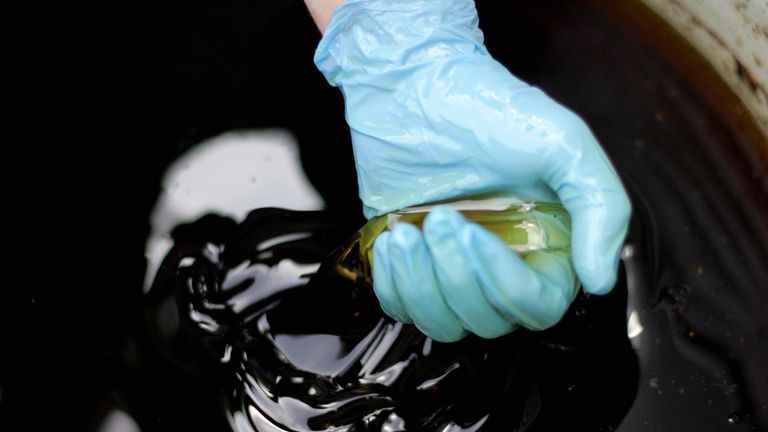Oil prices surge to near four-year high
Oil producing nations effectively rebuffed a call by Donald Trump to increase supply as US sanctions on Iran squeeze production.
Monday 24 September 2018 17:04, UK
Oil prices have jumped to the highest level for nearly four years after Saudi Arabia and Russia ruled out any immediate increase in production.
The decision on Sunday was effectively a rebuff to US President Donald Trump, who has called for immediate action to raise global supply.
Brent crude rose more than 3% to more than $81 a barrel on Monday, its highest level since November 2014.
Saudi Arabia dominates the OPEC group of oil-producing nations and Russia is its biggest oil-producer ally outside the group.
They have reportedly been discussing raising output by half a million barrels a day to counter falling supply from Iran.
But a meeting of OPEC and non-OPEC energy ministers in Algiers ended without any formal recommendation for a supply boost.
Mr Trump said last week that OPEC "must get prices down".
Experts estimate that once US sanctions on Iran are fully implemented from November it could result in the loss of as many as two million barrels a day from global supply.
Commodity traders Trafigura and Mercuria said they expected Brent crude to climb above $90 by Christmas and to pass $100 early in 2019.
BNP Paribas oil strategist Harry Tchilinguirian told Reuters Global Oil Forum: "It is now increasingly evident, that in the face of producers reluctant to raise output, the market will be confronted with supply gaps in the next three to six months that it will need to resolve through higher oil prices."
Higher prices tend to mean higher petrol costs.
However the AA has said other factors, including the strengthening pound over recent weeks, means that wholesale prices have fallen, and that this should help keep the lid on costs.
Meanwhile, higher oil prices tend to benefit UK-listed companies such as BP and Royal Dutch Shell, which employ thousands of people in the North Sea and whose shares are staples in many UK pension funds.



